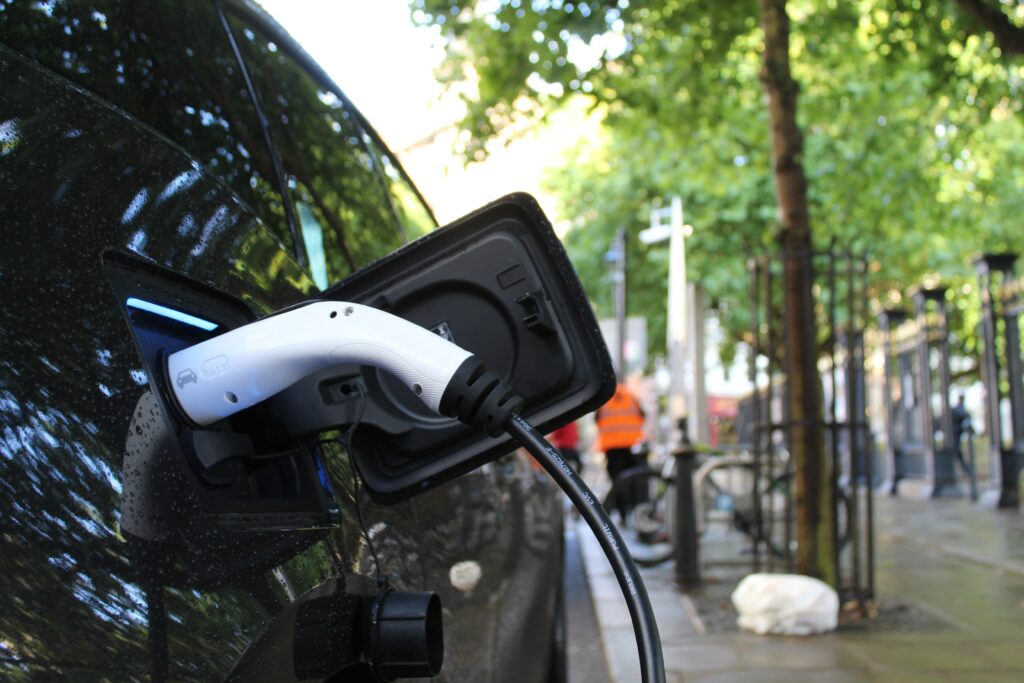Battery electric vehicles (BEVs) ended the year strong with its highest market share in December as one in three cars where EVs, according to New AutoMotive.
Sales of BEVs for the whole year stayed strong and manage to increase 38% compared to 2021, despite a decrease in sales of cars in the UK market.
During the month of December there were 39,780 BEVs registered which represented 34% of the total of all cars sold, while 27,605 hybrids were sold during the last month of 2022 and improving on November’s sales which stood at 24,748 BEVs registered.
Electric cars continue to be the fastest growing segment of the market, with 250,407 BEVs registered in 2022 and bringing its cumulative total to more than 610,000 at the end of December.
In contrast is the continued decline of fossil fuel vehicles with petrol market share dropping below 40% in December for the first time since at least 2010. The decline of sales from petrol cars will continue in 2023 as buyers transition to electric options.
Ben Nelmes, CEO at New AutoMotive, said: “As the government winds up grants and incentives for electric cars, it needs to be careful that these impressive numbers are not just a flash in the pan. Electric car registrations can go down as well as up. Ministers should enshrine their 2035 ambition in law by introducing a California-style Zero Emissions Vehicle (ZEV) mandate, which provides the market with clarity about the UK’s journey to cleaner road transport.”
As the government continues to delay plans to introduce a ZEV mandate it will further undermine interest to invest in domestic gigafactories and charging infrastructure, added Nelmes.
“A strong ZEV mandate will bring forward running cost savings for consumers that dwarf debates about fuel duty rates. Consumers have shown that they are ready to pass on petrol and embrace electric; now is the time for the government to show that it is on their side by setting ambitious targets that enable more people to access the benefits of going electric,” said Nelmes.
Despite an uptake of car sales in the second half of the year, the continued supply chain issues throughout the year caused a small dip year-over-year of the car market with 1.61 million vehicles sold in 2022, a 2% drop from the pandemic-afflicted 2021, according to data from the Society of Motor Manufacturers and Traders (SMMT).
However, sale of BEVs and hybrid EVs continue to improve on numbers from 2021, with 267,203 (+40.1%) and 187,948 (+27.6%) sold respectively in 2022.
December was the largest ever monthly market share for BEVs with 32.9%, which also ended as the second best type of vehicle in 2022 with 16.6% and surpassing for the first diesel cars.
The continued growth of BEVs sale in 2022 was mostly met by fleets and business buyers, accounting for two thirds of all registrations last year and thus will require more actions to accelerate the uptake of EVs from private buyers in the UK.
Mike Hawes, chief executive at SMMT, said: “Manufacturers’ innovation and commitment have helped EVs become the second most popular car type. However, for a nation aiming for electric mobility leadership, that must be matched with policies and investment that remove consumer uncertainty over switching, not least over where drivers can charge their vehicles.”
The latest data from Zap-Map shows that 1,507 new public EV chargers were added in November 2022 and bringing UK’s total to 36,572 but more still needs to be done to reduce the disparity between public and private charging across the UK.
“Ensuring everyone has access to suitable charging infrastructure is a critical milestone in the UK’s electrification journey and expanding both at-home and public charging infrastructure must remain a top priority,” said Kim Royds, EV director at British Gas.
Meanwhile, despite supply chain issues starting to stabilise and the shortage of semiconductors expected to ease, erratic supply will continue to impact manufacturing throughout 2023, according to SMMT.





